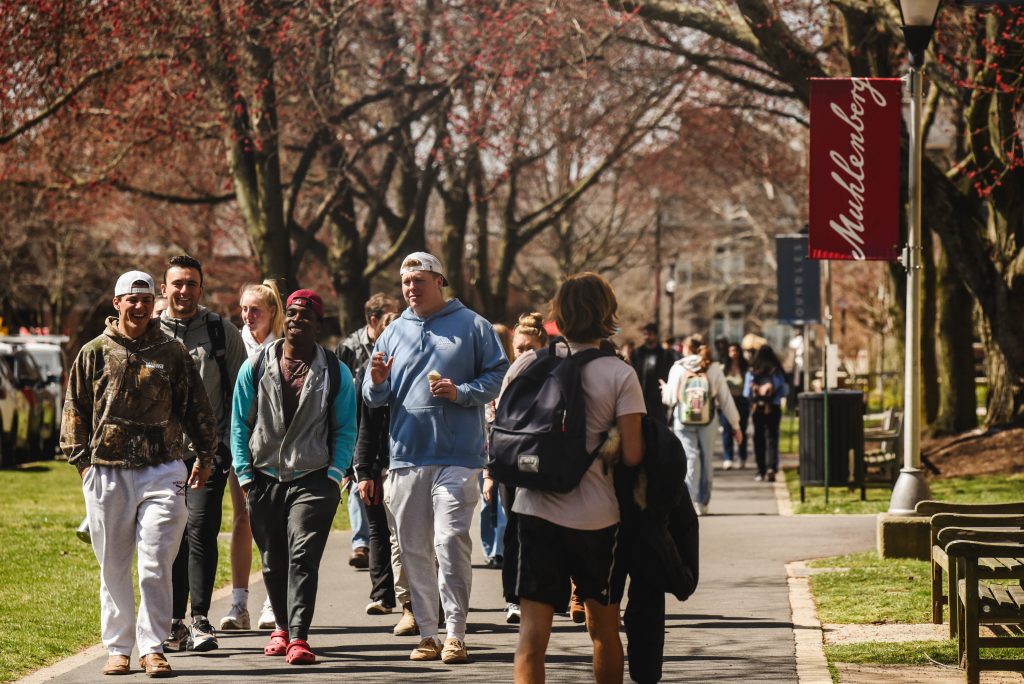Muhlenberg College’s academic curriculum, reimagined for students entering in the fall of 2024 and beyond, builds students’ agility, accelerates their drive and gives them the opportunity to go places and do things that launch lives and careers of consequence. Along the way, faculty and staff provide support through personalized coaching and mentorship.
“Complex problem solving, real-world problem solving, involves thinking about problems from multiple perspectives using the language of multiple disciplines,” said Provost Laura Furge. “We want our graduates to be thinking artists, ethical accountants, scientists who understand moral questions in the work that they’re doing, health care providers who understand the diversity of the human experience, business professionals who also understand how teams can innovate by not being siloed in their thinking. We think this curriculum helps to accomplish that.”

Dynamic Core Requirements
Students’ first years are spent exploring broadly, learning to think across academic disciplines — knitting them into a whole that’s greater than the sum of their parts. The new curriculum does away with core requirements based on discipline and introduces a core centered around content areas, each of which will be able to be satisfied by a wide variety of courses.
Real-World, Hands-On Experiences
As students progress, they apply their knowledge in increasingly focused ways and make their impact through hands-on learning experiences. One might study abroad, immersing themselves in the culture and intellectual traditions of a country halfway around the world. Another might intern in their chosen profession or engage in research with a faculty member at the top of their field.

Boundless Possibilities
Students can build multiple areas of expertise by pursuing additional majors and minors, as well as optional microcredentials that develop key skills for professional life, leadership and democratic citizenship.
This significantly changed curriculum foregrounds existing areas of strength that landed the College on rankings lists that prioritize return on investment and outcomes. It also reflects a significantly changed world and the needs of students who have lived through that upheaval. The College conducted focus groups with students, and “student feedback on the experience they were having and the experience they would like to have helped drive” the curricular changes, Furge said.
“We are responding to a new generation of learners in a global economy,” Furge said. “We came out of the emergency phase of a global pandemic, and our expectations for learning — how we’re going to learn, what we’re going to learn — have changed. We’ve also entered the age of artificial intelligence, increased social and political polarization and attacks on democracy, and we want our graduates to be most relevantly prepared to enter into careers where they can innovate and lead in effective ways.”
For more information, visit Muhlenberg College’s website.

 Courtesy of Muhlenberg College
Courtesy of Muhlenberg College